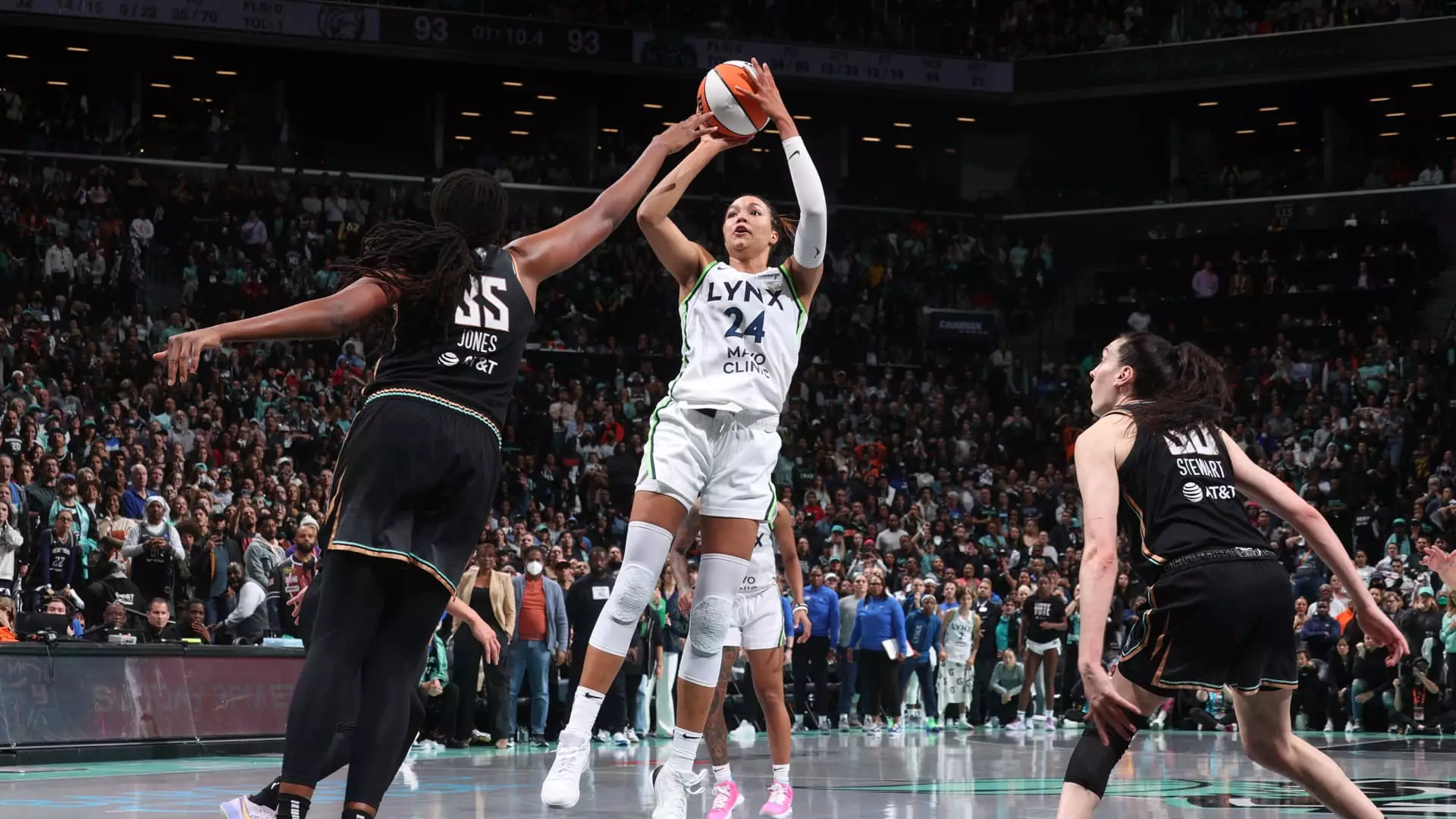The WNBA’s recent announcement to expand to Cleveland, Detroit, and Philadelphia is not just a routine business decision — it is a bold declaration of intent that the league, women’s sports, and American cities are ready to evolve together. While the league moves from 13 teams to an eventual 18, this expansion symbolizes more than growth in numbers; it signals a cultural shift and a reassertion of the value of women’s professional basketball at a level previously unseen. Yet, this leap forward comes loaded with challenges and unresolved questions, especially rooted in the league’s history and broader societal attitudes toward women’s sports.
Bold Moves Amid Skepticism and Legacy Concerns
Expanding the WNBA to cities like Cleveland and Detroit raises eyebrows not purely because of the logistics, but because both cities hold a somewhat checkered past when it comes to women’s basketball. Cleveland’s previous WNBA team, the Rockers, folded in the early 2000s due to financial difficulties and low attendance—a reflection of a market and management that had yet to fully embrace women’s professional sports. Detroit’s Shock, on the other hand, left after an impressive run marked by championship success and strong fan engagement. Yet, the team’s relocation in 2009 still looms as a cautionary tale. Restarting the league’s presence in these cities demands more than nostalgia; it requires serious investment in cultivating genuine and lasting relationships between players, fans, and communities.
The franchises will each pay a franchise fee of $250 million—a historic high for the WNBA—signaling a newfound confidence in women’s basketball as a lucrative enterprise. But the real question is whether these fees translate into sustainable support. Expansion fees might signify financial strength on paper, but the WNBA’s success depends on more than just capital—it hinges on resonating with local culture, building engaging game-day experiences, and securing media coverage that matches that of male counterparts.
The Expansion as a Cultural Barometer
This is not just a sports story; this is a societal statement. The WNBA’s commitment to growth in these traditional yet evolving basketball cities shows a growing awareness of women’s sports as a serious competition and business. The investment coming from NBA-affiliated ownership groups—such as the Rock Entertainment Group in Cleveland and Harris Blitzer Sports & Entertainment in Philadelphia—reveals a critical shift in how women’s basketball is positioned within the sports mainstream. The connection to established NBA teams carries hope that WNBA franchises will receive more promotional support, higher quality facilities, and better market positioning.
Still, alongside this optimism resides a cautionary reality: The WNBA is taking a meaningful step forward, but it is walking a delicate tightrope between ambition and sustainability. These cities were chosen from over a dozen candidates, with many like Houston and Kansas City still under consideration for future teams. Houston’s exclusion should not be dismissed; it represents the league’s awareness of shifting cultural and demographic landscapes and the challenge of balancing expansion with stability.
Why This Matters: A Center-Liberal Perspective on Progress and Equity
From a center-liberal viewpoint committed to practical progress and social equity, this expansion is vital. Women’s sports have long been marginalized despite clear evidence of their growing popularity and importance. Expanding the WNBA means challenging entrenched inequalities—not only in pay and visibility but in cultural perception. This expansion conveys the message that investing in women athletes and their stories is not merely a moral or symbolic gesture; it is an economically sound and socially necessary decision.
However, expansion without fruitful community engagement risks repeating past mistakes. Building fan loyalty will require embracing local identities and creating accessible, relatable experiences beyond the scoreboard. Moreover, the league must push for broader media coverage, robust broadcast deals, and better scheduling to attract casual watchers, not just passionate fans.
While some will view this move cynically—as a cash grab riding on the coattails of the NBA—the reality is more nuanced. This growth phase is a litmus test for the WNBA’s autonomy and strength as a league that can stand on its own. With the right balance of financial discipline, cultural investment, and bold marketing, these new teams could forge a new era in women’s basketball—one less defined by struggle and more by opportunity.
Reimagining Cities Through Women’s Basketball
Detroit, Cleveland, and Philadelphia are emblematic of the American industrial and post-industrial experience—cities with rich basketball lore, resilient communities, and ongoing economic challenges. Bringing WNBA franchises to these cities is not just about adding teams; it is about reclaiming the narrative about whose games deserve attention and pride. Women’s basketball can serve as a catalyst for urban revitalization, providing role models for younger generations and planting the seeds for a more inclusive sports culture.
The pressure on these teams to succeed will be intense, but they arrive within broader movements demanding equal recognition of women’s achievements. The WNBA has the opportunity to transform from a niche league to a central pillar of American sports culture, pushing against the gender biases still numerically and culturally entrenched in many aspects of society.
By setting this precedent, the league stakes a claim not merely in basketball but in the broader struggle for equity, respect, and growth in women’s sports. The stakes are high, and the path is uncertain—but the momentum, nevertheless, is undeniable.


Leave a Reply